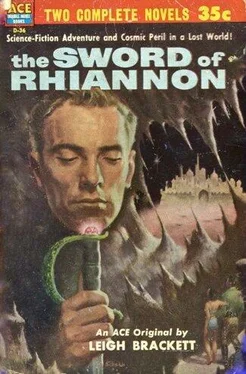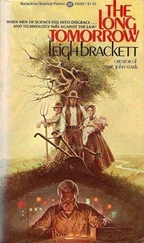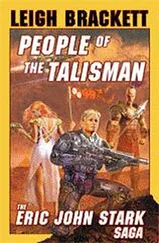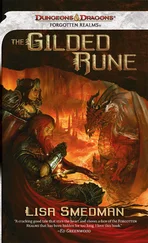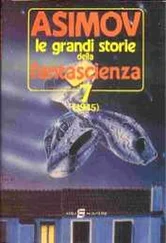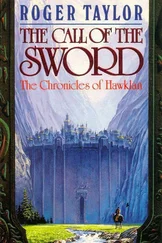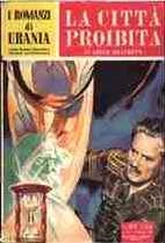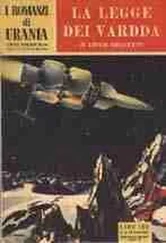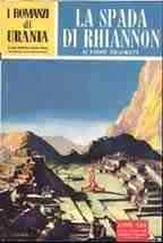The Sword of Rhiannon
by Leigh Brackett
Matt Carse knew he was being followed almost as soon as he left Madam Kan’s. The laughter of the little dark women was still in his ears and the fumes of thil lay like a hot sweet haze across his vision—but they did not obscure from him the whisper of sandaled feet close behind him in the chill Martian night.
Carse quietly loosened his proton-gun in its holster but he did not attempt to lose his pursuer. He did not slow nor quicken his pace as he went through Jekkara.
“The Old Town,” he thought. “That will be the best place. Too many people about here.”
Jekkara was not sleeping despite the lateness of the hour. The Low Canal towns never sleep, for they lie outside the law and time means nothing to them. In Jekkara and Valkis and Barrakesh night is only a darker day.
Carse walked beside the still black waters in their ancient channel, cut in the dead sea-bottom. He watched the dry wind shake the torches that never went out and listened to the broken music of the harps that were never stilled. Lean lithe men and women passed him in the shadowy streets, silent as cats except for the chime and the whisper of the tiny bells the women wear, a sound as delicate as rain, distillate of all the sweet wickedness of the world.
They paid no attention to Carse, though despite his Martian dress he was obviously an Earthman and though an Earthman’s life is usually less than the light of a snuffed candle along the Low Canals, Carse was one of them. The men of Jekkara and Valkis and Barrakesh are the aristocracy of thieves and they admire skill and respect knowledge and know a gentleman when they meet one.
That was why Matthew Carse, ex-fellow of the Interplanetary Society of Archaeologists, ex-assistant of the chair of Martian Antiquities at Kahora, dweller on Mars for thirty of his thirty-five years, had been admitted to their far more exclusive society of thieves and had sworn with them the oath of friendship that may not be broken.
Yet now, through the streets of Jekkara, one of Carse’s “friends” was stalking him with all the cunning of a sand-cat. He wondered momentarily whether the Earth Police Control might have sent an agent here looking for him and immediately discarded that possibility. Agents of anybody’s police did not live in Jekkara. No, it was some Low-Canaller on business of his own.
Carse left the canal, turning his back on the dead sea-bottom and facing what had once been inland. The ground rose sharply to the upper cliffs, much gnawed and worn by time and the eternal wind. The old city brooded there, the ancient stronghold of the Sea Kings of Jekkara, its glory long stripped from it by the dropping of the sea.
The New Town of Jekkara, the living town down by the canal, had been old when Ur of the Chaldees was a raw young village. Old Jekkara, with its docks of stone and marble still standing in the dry and dust-choked harbor, was old beyond any Earth conception of the word. Even Carse, who knew as much about it as any living man, was always awed by it.
He chose now to go this way because it was utterly dead and deserted and a man might be alone to talk to his friend.
The empty houses lay open to the night. Time and the scouring wind had worn away their corners and the angles of their doorways, smoothed them into the blurred and weary land. The little low moons made a tangle of conflicting shadows among them. With no effort at all the tall Earthman in his long dark cloak blended into the shadows and disappeared.
Crouched in the shelter of a wall he listened to the footsteps of the man who followed him. They grew louder, quickened, slowed indecisively, then quickened again. They drew abreast, passed and suddenly Carse had moved in a great catlike spring out into the street and a small wiry body was writhing in his grasp, mewing with fright as it shrank from the icy jabbing of the proton-gun in its side.
“No!” it squealed. “Don’t! I have no weapon. I mean no harm. I want only to talk to you.” Even through the fear a note of cunning crept into the voice. “I have a gift.”
Carse assured himself that the man was unarmed and then relaxed his grip. He could see the Martian quite clearly in the moonlight—a ratlike small thief and an unsuccessful one from the worn kilt and harness and the lack of ornaments.
The dregs and sweepings of the Low Canals produced such men as this and they were brothers to the stinging worms that kill furtively out of the dust. Carse did not put his gun away.
“Go ahead,” he said. “Talk.”
“First,” said the Martian, “I am Penkawr of Barrakesh. You may have heard of me.” He strutted at the sound of his own name like a shabby bantam rooster.
“No,” said Carse. “I haven’t.”
His tone was like a slap in the face. Penkawr gave a snarling grin.
“No matter. I have heard of you, Carse. As I said, I have a gift for you. A most rare and valuable gift.”
“Something so rare and valuable that you had to follow me in the darkness to tell me about it, even in Jekkara.” Carse frowned at Penkawr, trying to fathom his duplicity. “Well, what is it?”
“Come and I’ll show you.”
“Where is it?”
“Hidden. Well hidden up near the palace quays.”
Carse nodded. “Something too rare and valuable to be carried or shown even in a thieves’ market. You intrigue me, Penkawr. We will go and look at your gift.”
Pankawr showed his pointed teeth in the moonlight and led off. Carse followed. He moved lightly, poised for instant action. His gun hand swung loose and ready at his side. He was wondering what sort of price Penkawr of Barrakesh planned to ask for his “gift.”
As they climbed upward toward the palace, scrambling over worn reefs and along cliff-faces that still showed the erosion of the sea, Carse had as always the feeling that he was climbing a sort of ladder into the past. It turned him cold with a queer shivering thrill to see the great docks still standing, marked with the mooring of ships. In the eerie moonlight one could almost imagine…
“In here,” said Penkawr.
Carse followed him into a dark huddle of crumbling stone. He took a little krypton-lamp from his belt pouch and touched it to a glow. Penkawr knelt and scrambled among the broken stones of the floor until he brought forth a long thin bundle wrapped in rags.
With a strange reverence, almost with fear, he began to unwrap it. Carse knelt beside him. He realized that he was holding his breath, watching the Martian’s lean dark hands, waiting. Something in the man’s attitude had caught him into the same taut mood.
The lamplight struck a spark of deep fire from a half-covered jewel, and then a clean brilliance of metal. Carse leaned forward. Penkawr’s eyes, slanted wolf-eyes yellow as topaz, glanced up and caught the Earthman’s hard blue gaze, held it for a moment, then shifted away. Swiftly he drew the last covering from the object on the floor.
Carse did not move. The thing lay bright and burning between them and neither man stirred nor seemed even to breathe. The red glow of the lamp painted their faces, lean bone above iron shadows, and the eyes of Matthew Carse were the eyes of a man who looks upon a miracle.
After a long while he reached out and took the thing into his hands. The beautiful and deadly slimness of it, the length and perfect balance, the black hilt and guard that fitted perfectly his large hand, the single smoky jewel that seemed to watch him with a living wisdom, the name etched in most rare and most ancient symbols upon the blade. He spoke, and his voice was no more than a whisper.
“The sword of Rhiannon!”
Penkawr let out his breath in a sharp sigh. “I found it,” he said. “I found it.”
Читать дальше
